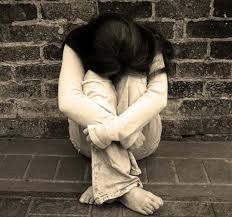The Ten Most Common Borderline Personality Disorder (BPD) Symptoms
Borderline personality disorder creates emotional instability causing mood swings that can change very rapidly. Commonly associated with low self-esteem and feelings of worthlessness. Changes in mood, impulse control, and bouts of anger tend to create barriers between those suffering from this and those closest to them. More often than not, there is a lot of stress and behavior issues caused by borderline personality disorder.
Symptoms from person to person are usually very similar, according to the Mayo Clinic. The ten most common symptoms of by borderline personality disorder are:
1. Impulsive behavior
The behavior exhibited by those suffering from borderline personality disorder tends to be very risky. Driving dangerously, unsafe sex, drug abuse, gambling, and even drug abuse.
2. Aware of behavioral issues
The borderline personality disorder does not blind a person to their own behavior issues. The impulse control they are facing, however, makes it hard to control them. They may start hurting themselves and feel powerless to stop it. This makes the cycle very difficult to break.
3. Wide mood swings

Borderline personality disorder often involves bouts of anxiety and depression, among other symptoms.
The mood swings associated with borderline personality disorder can be very extreme. The emotional stability of the person is already very fragile. When a person with a fragile state of mind has to deal with something that causes an emotional response, the effects can be drastic.
4. Anxiety and depression
They will also be dealing with severe bouts of anxiety which can lead to stress. There can be feelings of depression, adding to low self-esteem. These bouts are usually very short but they are also very extremely intense.
5. Problems with anger
This can be caused by the low self-esteem and made worse by the difficulty with impulse control. The anger often causes an increase in antagonistic behavior which can lead to fighting.
6. Inability to control impulses and emotions
This behavior tends to push others away because of the wild mood swings and lack of self-control. This can also increase the feelings of anxiety and stress, making it even harder to control their emotions.
7. Suicidal behavior
With any change in mood, especially when the person feels an overwhelming sense of worthlessness, they can start to show tendencies to start hurting themselves. Depressive moods and low self-esteem, anxiety and stress, as well as anger can lead to suicide attempts.
8. Feeling misunderstood, neglected, alone, empty or hopeless
There is a tendency for a person that may be suffering from borderline personality disorder to withdraw from their work, their friends, and their family. This could be because they feel no one understands what they are feeling. Some may also feel like they are being blamed for their uncontrolled emotions. They can also feel hopeless to make any changes.
9. Fear of being alone
From the outside a person suffering from borderline personality disorder can seem they want to be alone. This could be due to feeling withdrawn, behavior issues. They could also have difficulty make friends because of their low self-worth. This is however not what they are feeling. In fact, most people suffering from this disorder are afraid of being alone.
10. Feelings of self-hate and self-loathing
The all of these issues combine to make how they feel about themselves have a large impact on their self-esteem and self-worth. Because of all of the other symptoms of borderline personality disorder there is a constant self-hate and loathing. Depression and anger issues make these feelings worse. Couple these with the thought of loneliness and worthlessness and it can make it very difficult to recover.





